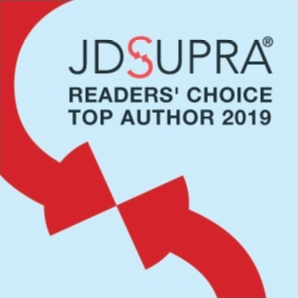If you Exchange Virtual Currency, you are a Money Transmitter and must comply with the Bank Secrecy Act (BSA) article was published by JD Supra on 7/23/19.
FinCEN defines a Money Service Business (MSB) as any person DOING BUSINESS, whether or not on a regular basis or as an organized business concern, in one or more of the following capacities:
- Check casher
- Currency dealing or exchange
- Issuer of travelers’ checks, money orders or stored value
- Seller or redeemer of travelers’ checks, money orders or stored value
- Money transmitter
- U.S. Postal Service
- The person must conduct more than $1,000 in business with one person in one or more transactions on any one day
- A business is an MSB for each activity for which it meets this threshold
What are BSA Requirements for MSBs?
- They must register with the Department of the Treasury. Registration of an MSB is the responsibility of the owner or controlling person of the MSB.
- They are subject to a suspicious activity reporting (SAR) requirement:
- Money transmitters
- Money order – issuers, sellers and redeemers
- Traveler’s check – issuers, sellers and redeemers
- US Postal Service
- A report must be filed when a transaction that is conducted by, at or through the MSB is both suspicious, and $2,000 or more
- They shall develop, implement, and maintain an effective anti-money laundering program. An effective anti-money laundering program is one that is reasonably designed to prevent the money services business from being used to facilitate money laundering and the financing of terrorist activities.
- They are required to file a Currency Transaction Report (CTR) for each deposit, withdrawal, exchange of currency or other payment or transfer in currency of more than $10,000
A Virtual Currency (VC) exchanger is a person engaged as a business in the exchange of virtual currency for real currency, funds, or other virtual currency. On March 2013, the Financial Crimes Enforcement Network (FinCEN) issued guidance stating that an EXCHANGER of VC is a money transmitter and must register as a MSB. Meaning, a VC exchanger that: (1) accepts and transmits a convertible virtual currency or (2) buys or sells convertible virtual currency for any reason is a Money Transmitter under FinCEN’s regulations. FinCEN also provides definitions for:
- “money transmitter” – as a person that provides money transmission services, or any other person engaged in the transfer of funds.
- “money transmission services” means “the acceptance of currency, funds, or other value that substitutes for currency from one person and the transmission of currency, funds, or other value that substitutes for currency to another location or person by any means.”
- “peer-to-peer exchanger” – as a natural person engaged in the business of buying and selling convertible virtual currency, who typically advertises and markets his or her services through classified ads, specifically designed web platform websites, online forums, other social media, and word of mouth.
The definition of a money transmitter does not differentiate between real currencies and convertible virtual currencies. Apparently, accepting and transmitting anything of value that substitutes for currency makes a person a money transmitter under the regulations.
FinCEN is on to MSB compliance
On April 18, 2019, FinCEN reported that it assessed a civil monetary penalty ($35,000 fine) against a Peer-to-Peer VC exchanger for violating Anti-Money Laundering (AML) laws. This is FinCEN’s first enforcement action against a peer-to-peer VC exchanger. The penalty was assessed against Mr. Eric Powers who operated as a peer to peer exchanger of convertible VC and advertised his intent to buy and sell VC (Bitcoin) on the internet. Mr. Powers executed transactions that included:
- Physical delivery and receipt of currency in person
- Sending or receiving currency through the mail
- Coordinating transactions by wire via a depository institution
FinCEN assessed the Penalty for the following violations of the Bank Secrecy Act (BSA):
- Failure to Register as a Money Services Business
- Violations of the Requirement to Establish and Implement a Written Anti-Money Laundering Program
- Failure to File Suspicious Activity Reports
Don’t be a Victim of your Own Making
If you are a business that engages in MSB activities it is best that you understand the MSB registration, compliance program and reporting requirements. Consult your specialized tax advisor.
https://www.jdsupra.com/legalnews/if-you-exchange-virtual-currency-you-87129/





